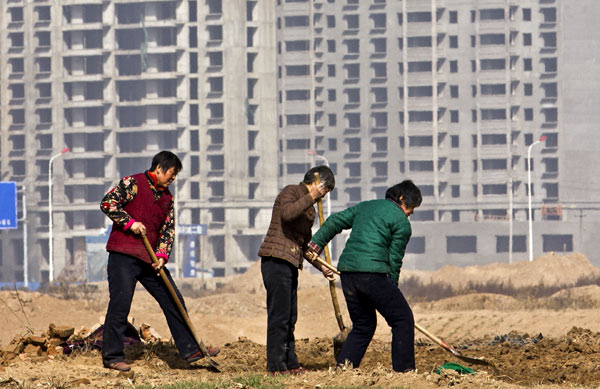

 In Invisible Cities by Italian novelist Italo Calvino, Marco Polo tells Kublai Khan stories about 55 cities he visited and the dialogue between the Italian traveler and Chinese emperor touches upon a wide range of topics, mostly in prose form. The two men seem to take different meanings from what the other is saying.
In Invisible Cities by Italian novelist Italo Calvino, Marco Polo tells Kublai Khan stories about 55 cities he visited and the dialogue between the Italian traveler and Chinese emperor touches upon a wide range of topics, mostly in prose form. The two men seem to take different meanings from what the other is saying.
I never read Calvino's poetic book, first published in 1972. But Chinese novelist Xue Yiwei's book, Traveling Along With Marco Polo - Thoughts about Invisible Cities, an interpretation of Calvino's novel, provided me with some insight.
What I find is both strange and interesting is the fact that Marco Polo, as a traveler, talks about cities with an emperor who led his nomadic cavalry to conquer a large part of Asia and Europe. Kublai Khan was definitely not an urban man and in Xue's interpretation, the 55 cities are ones of lust, power and violence, more in keeping with what the emperor envisages.

Villagers prepare to plant crops in Huaxian county, Henan province, in March, in front of apartments into which they are soon to move. [Photo / China Daily]
I appreciate Xue raising Marco Polo's division of cities into two types: those that stay in harmony with desire and those that split with desire. The former does a good job in meeting urban dwellers' demands for a better life and creates a demand for consumption among residents. Two different fates await cities that split with desire. One makes cities centers of greed and material gain by giving free rein to people's lust for whatever they want instead of whatever they need. The other possible fate is inertia where over-development stifles rather than fosters.
I wonder if an association can be established between Calvino's cities and Xue's interpretation, and the current urbanization in China.
If urbanization is an inevitable process for a country's development, leaders' understanding of what kind of city urban dwellers should have makes a great difference to whether the process will be conducive to the country's long-term sustainable development.